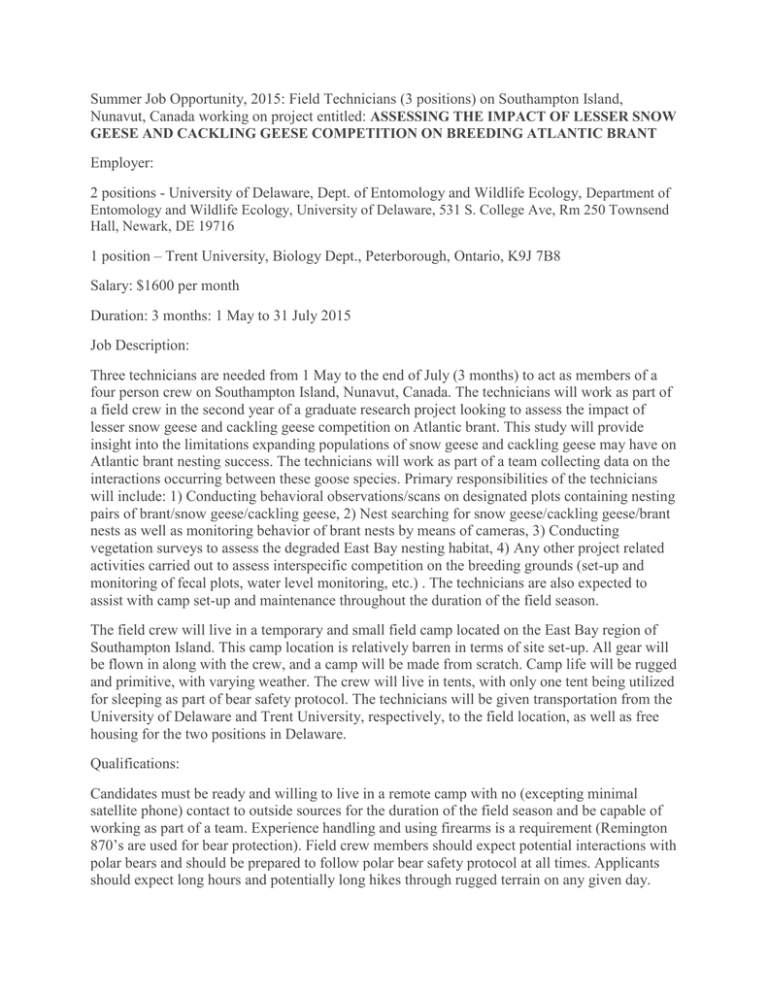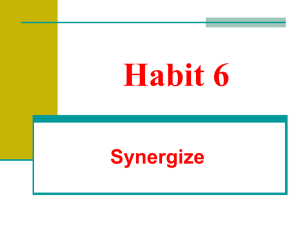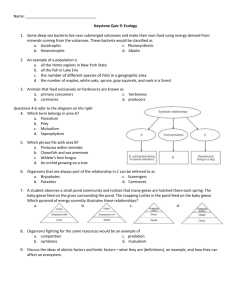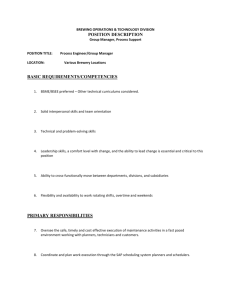Summer Job Opportunity, 2015: Field Technicians (3 positions) on Southampton... Nunavut, Canada working on project entitled:
advertisement

Summer Job Opportunity, 2015: Field Technicians (3 positions) on Southampton Island, Nunavut, Canada working on project entitled: ASSESSING THE IMPACT OF LESSER SNOW GEESE AND CACKLING GEESE COMPETITION ON BREEDING ATLANTIC BRANT Employer: 2 positions - University of Delaware, Dept. of Entomology and Wildlife Ecology, Department of Entomology and Wildlife Ecology, University of Delaware, 531 S. College Ave, Rm 250 Townsend Hall, Newark, DE 19716 1 position – Trent University, Biology Dept., Peterborough, Ontario, K9J 7B8 Salary: $1600 per month Duration: 3 months: 1 May to 31 July 2015 Job Description: Three technicians are needed from 1 May to the end of July (3 months) to act as members of a four person crew on Southampton Island, Nunavut, Canada. The technicians will work as part of a field crew in the second year of a graduate research project looking to assess the impact of lesser snow geese and cackling geese competition on Atlantic brant. This study will provide insight into the limitations expanding populations of snow geese and cackling geese may have on Atlantic brant nesting success. The technicians will work as part of a team collecting data on the interactions occurring between these goose species. Primary responsibilities of the technicians will include: 1) Conducting behavioral observations/scans on designated plots containing nesting pairs of brant/snow geese/cackling geese, 2) Nest searching for snow geese/cackling geese/brant nests as well as monitoring behavior of brant nests by means of cameras, 3) Conducting vegetation surveys to assess the degraded East Bay nesting habitat, 4) Any other project related activities carried out to assess interspecific competition on the breeding grounds (set-up and monitoring of fecal plots, water level monitoring, etc.) . The technicians are also expected to assist with camp set-up and maintenance throughout the duration of the field season. The field crew will live in a temporary and small field camp located on the East Bay region of Southampton Island. This camp location is relatively barren in terms of site set-up. All gear will be flown in along with the crew, and a camp will be made from scratch. Camp life will be rugged and primitive, with varying weather. The crew will live in tents, with only one tent being utilized for sleeping as part of bear safety protocol. The technicians will be given transportation from the University of Delaware and Trent University, respectively, to the field location, as well as free housing for the two positions in Delaware. Qualifications: Candidates must be ready and willing to live in a remote camp with no (excepting minimal satellite phone) contact to outside sources for the duration of the field season and be capable of working as part of a team. Experience handling and using firearms is a requirement (Remington 870’s are used for bear protection). Field crew members should expect potential interactions with polar bears and should be prepared to follow polar bear safety protocol at all times. Applicants should expect long hours and potentially long hikes through rugged terrain on any given day. Applicants should also be prepared to work in cold, windy weather, as well as potentially warm, buggy weather. Physical fitness is a requirement and any applicants should be capable of hiking 10-20 miles per day for the entirety of the field season. Preference will be given to those with prior nest searching/behavioral scan experience. We are seeking at least one technician with 3 or more years of remote northern (preferably arctic) experience. Hiring Process: To apply, email a letter of interest, resume, and contact information for 3 references. Please combine all of the materials into one document (Word or PDF), and name the file with your last name_first name (e.g., Smith_Adam.docx). Application review will begin immediately. Contact: Clark Nissley can@udel.edu



